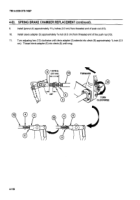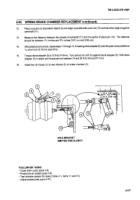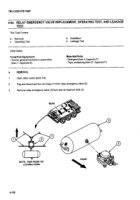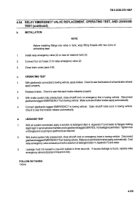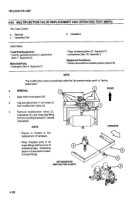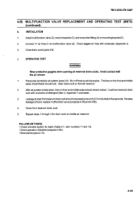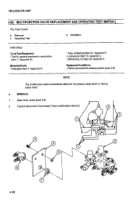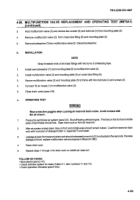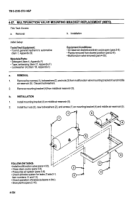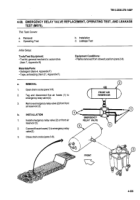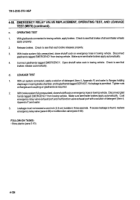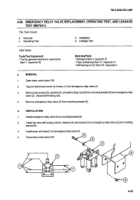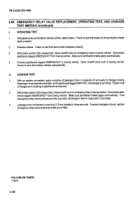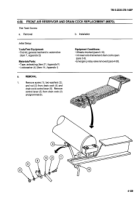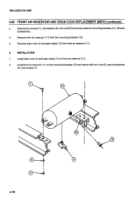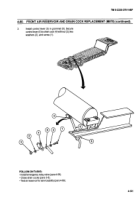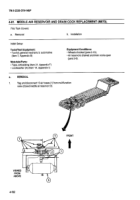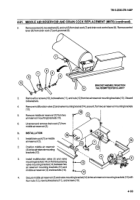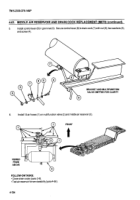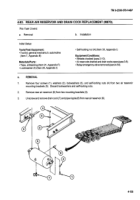TM-5-2330-378-14-P - Page 214 of 524
TM 5-2330-378-14&P
4-58.
EMERGENCY RELAY VALVE REPLACEMENT, OPERATING TEST, AND LEAKAGE
TEST (M870) (continued).
c.
OPERATING
TEST
1.
With gladhands
connected
to towing vehicle, apply brakes. Check to see that brakes of all semitrailer
wheels
apply properly.
2.
Release brakes.
Check to see that each brake releases properly.
3.
With brake system fully pressurized,
close shutoff cock on emergency hose in towing vehicle.
Disconnect
gladhands tagged EMERGENCY
from towing vehicle.
Make sure semitrailer brakes apply automatically.
4.
Connect gladhands tagged EMERGENCY.
Open shutoff valve cock in towing vehicle.
Check to see that
brakes release automatically.
d.
LEAKAGE TEST
1 .
With air system connected,
apply a solution of detergent (Item 4, Appendix F) and water to flanges holding
diaphragm
inspring brake chamber, and to gladhandstagged
SERVICE.
No leakage is permitted. Tightennuts
on flanges and coupling on gladhands
as required.
2.
With brake system fully pressurized,
close shutoff cock on emergency
hose in towing vehicle.
Disconnectglad
hands tagged EMERGENCY
from towing vehicle.
Make sure semitrailer brakes apply automatically.
Coat
emergency
relay valve exhaust port and multifunction valve exhaust portwith
a solution of detergent (Item 4,
Appendix F) and water.
3.
Leakage must not exceed a one-inch (2.5 cm) bubble in three seconds.
If excess leakage is found, replace
emergency relayvalve (para 4-58) or multifunction valve (para 4-55).
FOLLOW-ON TASKS:
- Stow planks (para 2-10).
4-126
Back to Top

